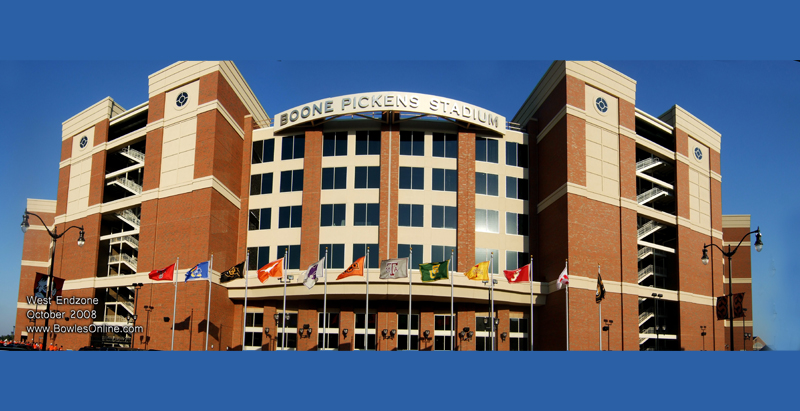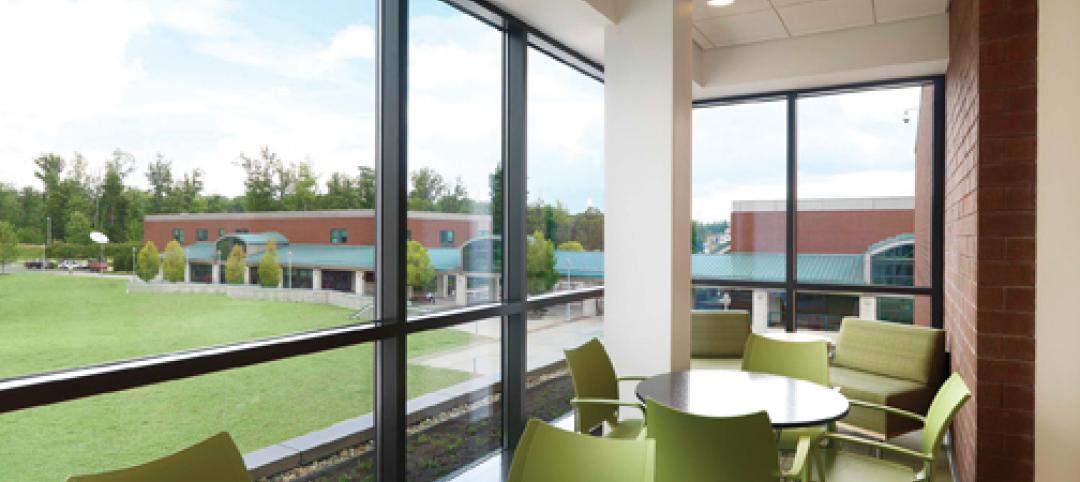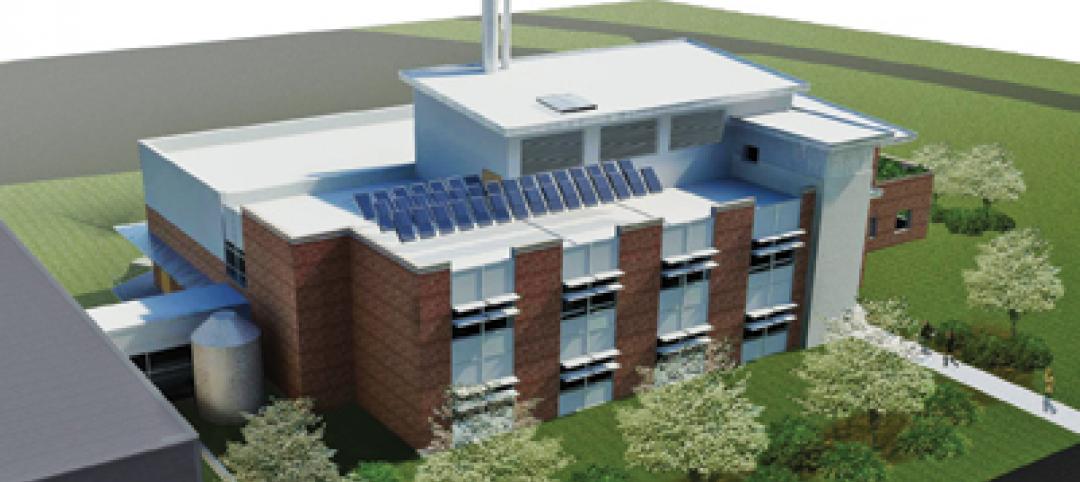Plumbing should always be looked at in the VE process, if for no other reason than there are a lot of units of pipe in a project. There are lots of places in a DWV system where value can be captured, but there are applications where what looks like value can mask risks that you might not want to take.
Because of financial realities, value engineering can often mean the difference between a project being shelved or a building being built. This creates tremendous pressure for VE practitioners to lower the first cost of any project. Often, this is a reasonable thing to do. The danger is that, when pushed too far, cost-cutting can add unacceptable risk, lower the value of the building and hide expenses in the total cost of ownership. That's what happened with the largest building project in recent NCAA history, the T. Boone Pickens Stadium at Oklahoma State University.
The Facts
In 2011, two years after the Stadium opened, a break in a plastic drain pipe was found. An inspection of the rest of the system revealed 15 other breaks. The football team was forced to abandon the facility for five months while contractors jackhammered thorough concrete floors to fix the problems.
Litigation was eventually settled in February 2015, for $700,000. The biggest portion of the settlement ($400,000) was paid by the firm that did the architectural, engineering and design work. The manufacturer of the water heaters used in the renovations, agreed to pay $125,000 of the settlement. This suggests that the maximum working temperature of PVC was exceeded, leading to collapse and failure. Unfortunately, this avoidable mistake is more common than it should be.
The Take-Aways
PVC can be used successfully below ground, but it requires careful installation and soil prep per ASTM D2321. Further, if its maximum working temperature will be exceeded, it can't be used. PVC is only a value when it doesn't fail. To make value engineering DWV systems easier to understand, we have prepared a downloadable brochure and handy checklist.

At Charlotte Pipe, we make both PVC and Cast Iron pipe. We are proud of the products that we make with both materials, but it doesn't do anybody any good when a fine material is used in the wrong application. If you have any questions about value engineering DWV systems -- even if you aren't using our pipe -- please call Charlotte’s Technical Services Department at 800-438-6091.
Related Stories
| Feb 10, 2011
Moen M•Power electronic faucets
At 0.5 gpm, Moen’s M•Power electronic faucets meet the current standards, and offer features that eliminate waste. Improved electronic sensors reduce reflectivity to stop false sensing, and turn off automatically after 30 seconds. Electronics can be installed above or below deck to accommodate different sink styles.
| Jan 21, 2011
Virginia community college completes LEED Silver science building
The new 60,000-sf science building at John Tyler Community College in Midlothian, Va., just earned LEED Silver, the first facility in the Commonwealth’s community college system to earn this recognition. The facility, designed by Burt Hill with Gilbane Building Co. as construction manager, houses an entire floor of laboratory classrooms, plus a new library, student lounge, and bookstore.
| Dec 2, 2010
Alliance for Sustainable Built Environments adds Kohler's Robert Zimmerman to Board of Directors
Robert Zimmerman, Manager – Engineering, Water Conservation & Sustainability at Kohler Co., in Kohler, Wisconsin, has joined the Board of Directors of the Alliance for Sustainable Built Environments. In his position at Kohler Co., Rob is involved with all aspects of water conservation and sustainability related to plumbing fixtures and faucets.
| Nov 9, 2010
U.S. Army steps up requirements for greening building
Cool roofs, solar water heating, and advanced metering are among energy-efficiency elements that will have to be used in new permanent Army buildings in the U.S. and abroad starting in FY 2013. Designs for new construction and major renovations will incorporate sustainable design and development principles contained in ASHRAE 189.1.
| Nov 3, 2010
Park’s green education center a lesson in sustainability
The new Cantigny Outdoor Education Center, located within the 500-acre Cantigny Park in Wheaton, Ill., earned LEED Silver. Designed by DLA Architects, the 3,100-sf multipurpose center will serve patrons of the park’s golf courses, museums, and display garden, one of the largest such gardens in the Midwest.
| Nov 3, 2010
Public works complex gets eco-friendly addition
The renovation and expansion of the public works operations facility in Wilmette, Ill., including a 5,000-sf addition that houses administrative and engineering offices, locker rooms, and a lunch room/meeting room, is seeking LEED Gold certification.
| Nov 3, 2010
Sailing center sets course for energy efficiency, sustainability
The Milwaukee (Wis.) Community Sailing Center’s new facility on Lake Michigan counts a geothermal heating and cooling system among its sustainable features. The facility was designed for the nonprofit instructional sailing organization with energy efficiency and low operating costs in mind.
| Nov 3, 2010
Senior housing will be affordable, sustainable
Horizons at Morgan Hill, a 49-unit affordable senior housing community in Morgan Hill, Calif., was designed by KTGY Group and developed by Urban Housing Communities. The $21.2 million, three-story building will offer 36 one-bed/bath units (773 sf) and 13 two-bed/bath units (1,025 sf) on a 2.6-acre site.
| Nov 3, 2010
Virginia biofuel research center moving along
The Sustainable Energy Technology Center has broken ground in October on the Danville, Va., campus of the Institute for Advanced Learning and Research. The 25,000-sf facility will be used to develop enhanced bio-based fuels, and will house research laboratories, support labs, graduate student research space, and faculty offices. Rainwater harvesting, a vegetated roof, low-VOC and recycled materials, photovoltaic panels, high-efficiency plumbing fixtures and water-saving systems, and LED light fixtures will be deployed. Dewberry served as lead architect, with Lord Aeck & Sargent serving as laboratory designer and sustainability consultant. Perigon Engineering consulted on high-bay process labs. New Atlantic Contracting is building the facility.
| Nov 1, 2010
Vancouver’s former Olympic Village shoots for Gold
The first tenants of the Millennium Water development in Vancouver, B.C., were Olympic athletes competing in the 2010 Winter Games. Now the former Olympic Village, located on a 17-acre brownfield site, is being transformed into a residential neighborhood targeting LEED ND Gold. The buildings are expected to consume 30-70% less energy than comparable structures.















